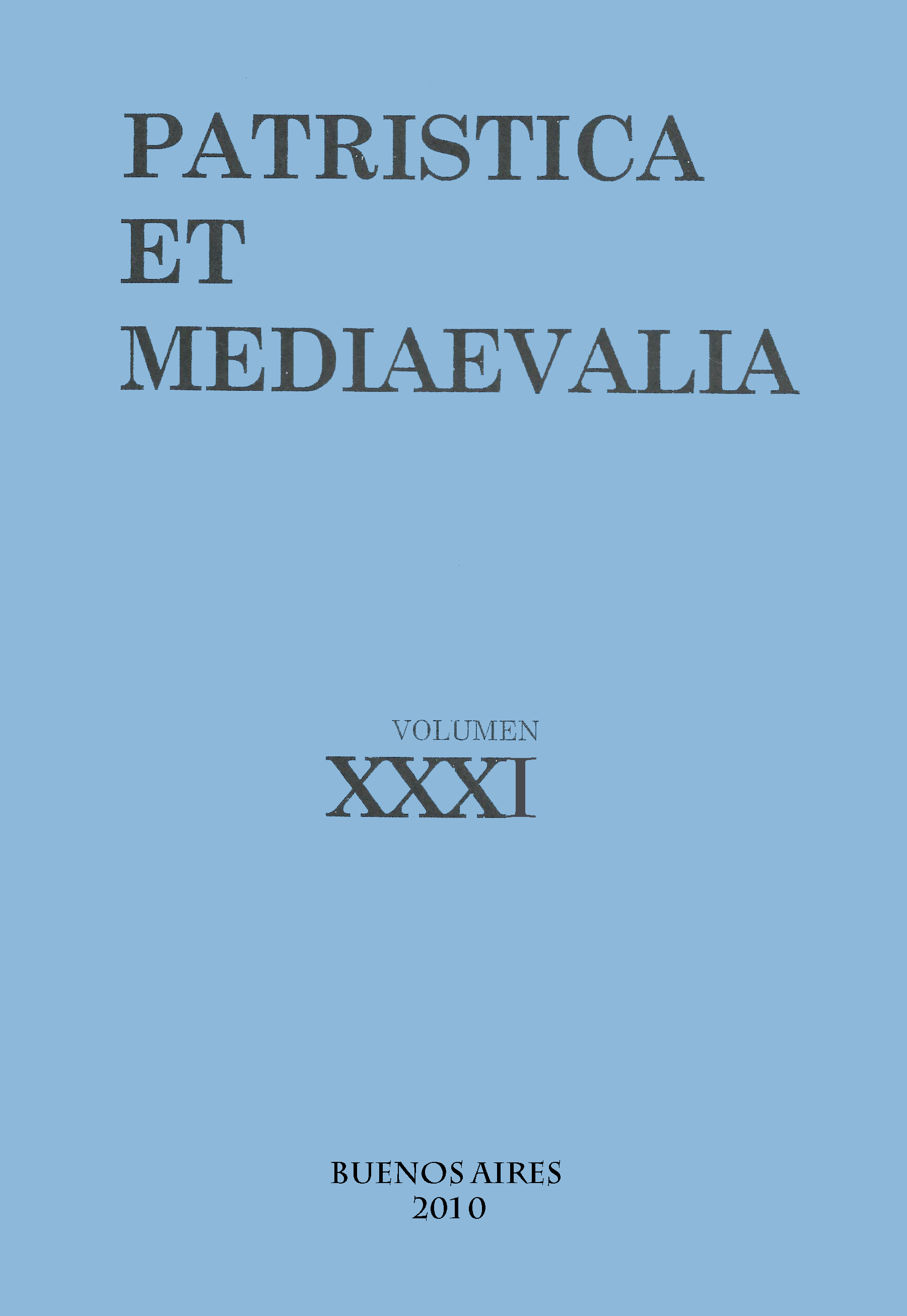About the Sources of the Condemnation of 1277. The Nobilitas in the Book De Amore of Andreas Capellanus and in the Ethical Treatises of Radical Aristotelism
Abstract
In the prologue of his Syllabus of 1277, Bishop Etienne Tempier condemned the book De amare or De deo Amoris, attributed to Andreas Capellanus. The Syllabus forbids the reading of De amore together with some treatises on necromancy. Because of this explicit reference to the book, but not to its content, much has been discussed about De amore as a possible source of the theses condemned by Tempier.Downloads
References
Bianchi, L. (1990). Il vescovo e i filosofi: la condanna parigina del 1277 e l’evoluzione dell’aristotelismo scolastico. Bergamo: Lubrina-LEB.
Bianchi, L. (2005). Felicità intellettuale, ‘ascetismo’ e ‘arabismo’. Nota sul De sommo bono di Boezio di Dacia. En Bettetini, M. & Paparella,F. D. (eds.). La felicità nel medioevo. Fédération Internationale des insittuts d’Études Médiévales (Textes et Études du Moyen Âge). Louvain-la-Neuve, 13-34.
De Libera, A. (2000). Pensar en la Edad Media, trad. de J. M. Ortega y Gonçal Mayos. Barcelona: Anthropos.
Denomy, A. J. (1946). The ‘De amore’ of Andres Capellanus and the Condemnation of 1277. Mediaeval Studies, 8, 107-149.
Gauthier, R. A. (1947-48). Trois commentaires ‘averroïstes’ sur l’Ethique à Nicomacque. Archives d’histoire doctrinale et littéraire du Moyen Aye (AHLDMA), 16, 187-336.
Grabmann, M. (1931). Die opuscula De Sumo bono sive vita philosophi und de sompniis des Boethius von Dacien. Archives d’histoire doctrinale et littéraire du Moyen Aye (AHLDMA), 6, 200-224.
Grabmann, M. (1932). Das Werk de Amore des Andreas Capellanus und das Verurteilungsdektret des Bischofs Stephan Tempier von Paris vom 7 März 1277. Speculum, 7, 75-79.
Hissette, R. (1977). Enquête sur les 219 articles condamnés à Paris le 7 mars 1277. Lovain-La-Nueve: Peeters.
Izquierdo, J. M. (1998). Algunos comentarios a la poesía trovadores. Romansk Forum, Universitetet i Oslo, 8(2), 37-56.
Kristeller, O. (1955). A philosophical Treatise from Bologna dedicated to Guido Cavalcanti: Magister Jacobus de Pistorio and his ‘Quaestio de felicitate’. En Medioevo e Rinascimento. Studi in honore di Bruno Nardi. Firenze: Sansoni, 425-463.
Le Goff, J. (1986). Los intelectuales en la Edad Media. Barcelona: Gedisa.
Piché, D. (1999). La condamnation parisienne de 1277. Nouvelle édition, traduction, introduction, et commentaire (avec la collaboration de C. Lafleur). Paris: Vrin.
Singer, I. (1973). Andreas Capellanus: A Reading of the Tractacus. Modern Language Notes (MLN), 88, 1288-1315.
Tursi, A. & Rodrigues Gesualdi, C. (2000). Tres tratados averroístas. Buenos Aires: FFyL - UBA.
1. The authors who publish in this magazine accept the following conditions:
-
They retain the copyright and grant to the magazine the right of the first publication, with the work registered under the Attribution-ShareAlike 4.0 International License that allows third parties to use what is published as long as they mention the authorship of the work and the first publication in this magazine.
-
They can make other independent and additional contractual agreements for the non-exclusive distribution of the version of the article published in this magazine (eg. include it in an institutional repository or publish it in a book) provided that they clearly indicate that the work was first published in this journal.
-
They are allowed and recommended to publish their work on the Internet (for example on institutional or personal pages).
2. AutoArchive Conditions. Authors are allowed and encouraged to distribute post-print electronic versions of their manuscripts because it promotes their circulation, a possible increase of quotation and a major reach among the Academic community. Color RoMEO: blue.













